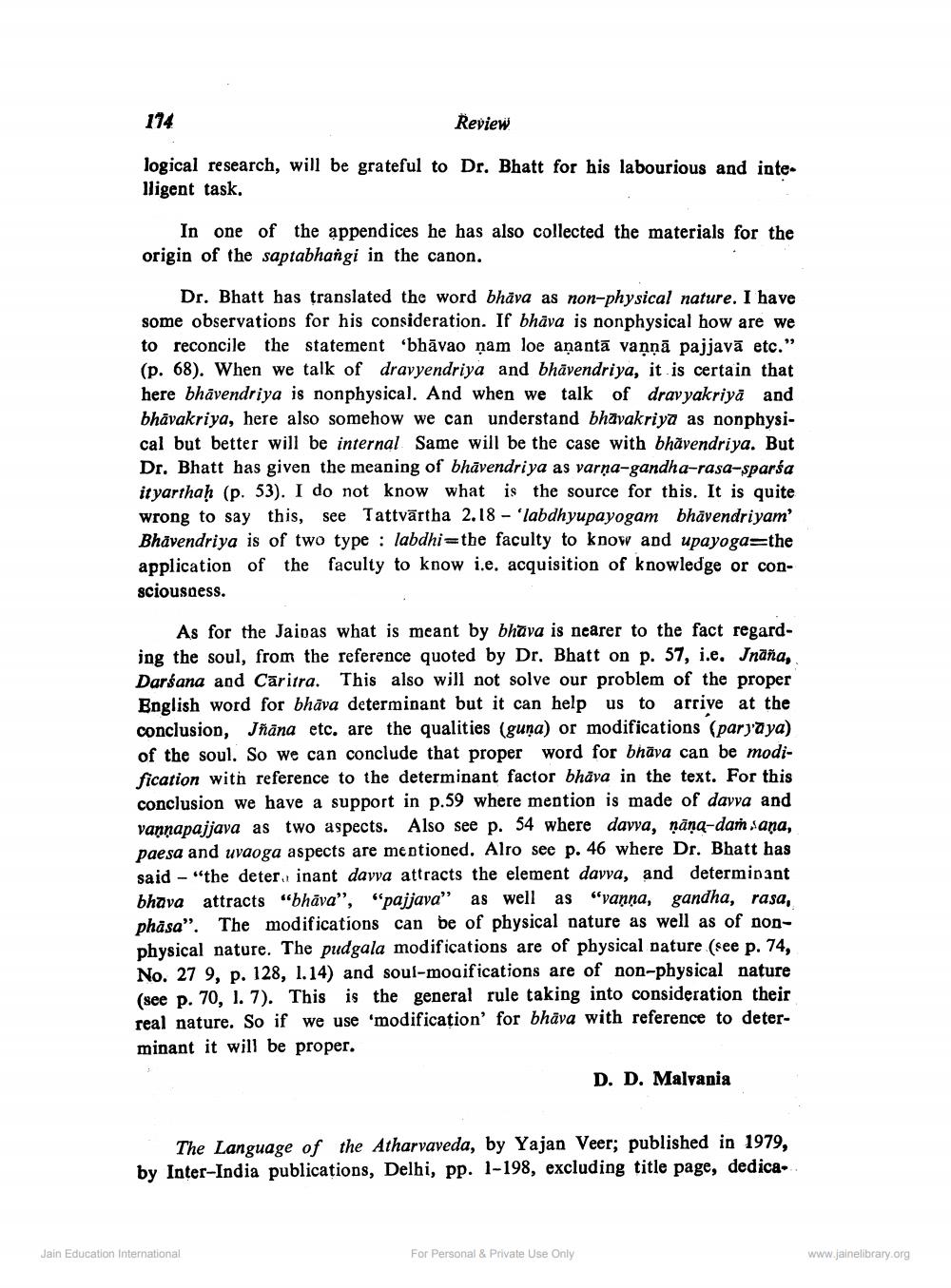________________
174
Review
logical research, will be grateful to Dr. Bhatt for his labourious and intelligent task.
In one of the appendices he has also collected the materials for the origin of the saptabhangi in the canon.
Dr. Bhatt has translated the word bhäva as non-physical nature. I have some observations for his consideration. If bhäva is nonphysical how are we to reconcile the statement 'bhāvao nam loe añantā vannā pajjavā etc." (p. 68). When we talk of dravyendriya and bhāvendriya, it is certain that here bhāvendriya is nonphysical. And when we talk of dravyakriya and bhāvakriya, here also somehow we can understand bhavakriya as nonphysical but better will be internal Same will be the case with bhävendriya. But Dr. Bhatt has given the meaning of bhāvendriya as varņa-gandha-rasa-sparsa ityarthaḥ (p. 53). I do not know what is the source for this. It is quite wrong to say this, see Tattvārtha 2.18 - 'labdhyupayogam bhävendriyam' Bhāvendriya is of two type : labdhi=the faculty to know and upayoga=the application of the faculty to know i.e. acquisition of knowledge or consciousness.
As for the Jaipas what is meant by bhāva is nearer to the fact regarding the soul, from the reference quoted by Dr. Bhatt on p. 57, i.e. Jnāña, Darsana and Caritra. This also will not solve our problem of the proper English word for bhāva determinant but it can help us to arrive at the conclusion, Jħāna etc. are the qualities (guna) or modifications (paryāya) of the soul. So we can conclude that proper word for bhäva can be modification with reference to the determinant factor bhäva in the text. For this conclusion we have a support in p.59 where mention is made of davva and vannapajjava as two aspects. Also see p. 54 where davva, ņāņa-dam .ana, paesa and uvaoga aspects are mentioned. Alro see p. 46 where Dr. Bhatt has said - "the deter, inant davva attracts the element davva, and determinant bhava attracts "bhāva","pajjava" as well as "vanņa, gandha, rasa, phasa". The modifications can be of physical nature as well as of nonphysical nature. The pudgala modifications are of physical nature (see p. 74, No. 27 9, p. 128, 1.14) and soul-mocifications are of non-physical nature (see p. 70, 1. 7). This is the general rule taking into consideration their real nature. So if we use 'modification for bhāva with reference to determinant it will be proper.
D. D. Malvania
The Language of the Atharvaveda, by Yajan Veer; published in 1979, by Inter-India publications, Delhi, pp. 1-198, excluding title page, dedica
Jain Education International
For Personal & Private Use Only
www.jainelibrary.org




